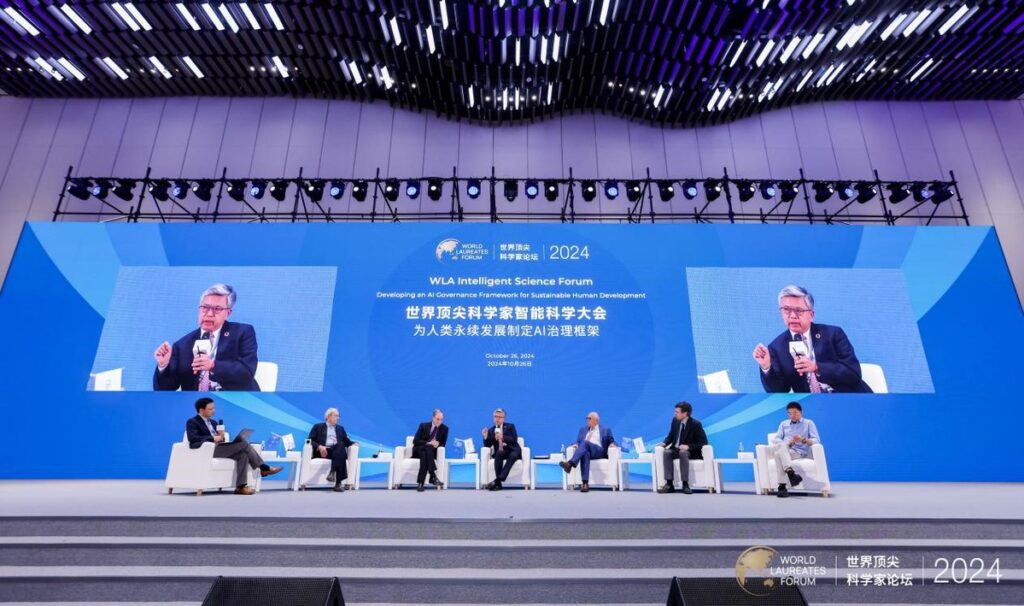On October 26, leading scientists and industry experts met at the World Laureates Association Forum in Shanghai to discuss creating a global framework for artificial intelligence (AI) governance. The event focused on responsible innovation in response to the rapid advancements in AI and its significant societal impacts. Key speakers, including Turing Award winners and prominent academics, addressed the urgent need for effective oversight of AI technologies. They explored the risks of algorithmic bias and the importance of equitable access to AI benefits. The forum also launched a new Physical Science Conference, reflecting its commitment to advancing both fundamental research and practical applications for the betterment of society.
On October 26, leading scientists and experts came together at the World Laureates Association (WLA) Forum in Shanghai. They focused on creating a global framework for governing artificial intelligence (AI). With AI evolving rapidly, there was a strong call for responsible innovation to address its significant effects on society.
The forum, titled “Developing an AI Governance Framework for Sustainable Human Development,” included notable speakers such as Martin Hellman, a 2015 Turing Award winner, and E Weinan from the Chinese Academy of Sciences. Professor Gong Ke opened the event, stressing the importance of establishing a strong AI governance system to keep pace with AI’s incredible capabilities, pointing out that no universally accepted framework currently exists.
At the forum, distinguished guests like Nobel laureates and industry leaders discussed both the remarkable opportunities and potential risks that come with AI. Joseph Sifakis, a Turing Award recipient, spoke about the difficulties of ensuring trust in AI systems, citing their unpredictability and reliance on sensory data.
Jon Kleinberg, who received the 2024 WLA Prize, warned against algorithmic bias in his presentation. He used the farming term “monoculture” to illustrate how a lack of diversity in algorithms can lead to significant problems in decision-making.
During roundtable discussions, participants discussed how to create strong oversight for AI, tackle global challenges associated with it, and promote responsible innovation. They highlighted the need for a comprehensive AI governance system to ensure fair data use and algorithm designs while reducing bias that could lead to unfair outcomes.
This year’s WLA Forum, themed “Excellence in Science,” also saw the launch of a new Physical Science Conference, alongside previously established conferences on Life Science and Intelligence Science. This expansion shows the forum’s dedication to advancing fundamental research and applying it practically for the betterment of society.
Luo Bin contributed to this news piece.
What is the global AI governance framework?
The global AI governance framework is a set of guidelines and rules meant to help countries and organizations manage the use of artificial intelligence in a safe and responsible way.
Why is the global AI governance framework important?
It is important because it helps ensure that AI technology is used ethically, protects people’s rights, and prevents misuse that could harm society.
How does the WLA forum contribute to AI governance?
The WLA forum brings together experts and leaders to discuss and share ideas about AI governance. They work together to create better policies and practices for using AI around the world.
Who needs to follow the global AI governance framework?
Governments, businesses, researchers, and anyone involved in developing or using AI technology should follow this framework to promote safety and fairness in AI applications.
What are the main goals of the global AI governance framework?
The main goals are to ensure AI is used ethically, promote transparency and accountability, protect privacy, and encourage cooperation between countries in AI development and use.






